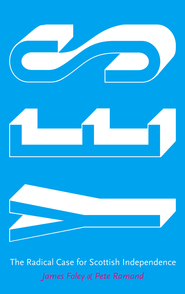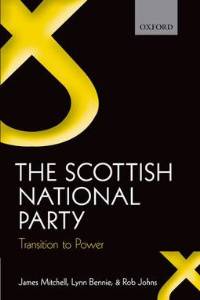Reading List: 6 essential books on Scotland and the Scottish independence referendum
The Scottish Independence Referendum may be over, but the Scottish question is far from settled. Here, we round up a variety of books on Scotland’s social and political past and present.

Royal College of Physician, Edinburgh. Credit: byronv2, (CC BY NC 2.0)
Interested in what an independent future might have looked like?
 Yes: The Radical Case for Scottish Independence by James Foley and Pete Ramand
Yes: The Radical Case for Scottish Independence by James Foley and Pete Ramand
Scottish voters will decide on 18 September 2014 whether to remain in the United Kingdom or to become an independent country. James Foley and Pete Ramand argue in Yes: The Radical Case for Scottish Independence that Scotland must go its own way, but that this should only be the first step in a more radical transformation of Scotland. Richard Berry applauds the book for its distinctive take on the debate and for exposing flaws in the arguments of both pro-union and mainstream pro-independence campaigners, but finds that it fails to convince readers that a Yes vote will help bring about the reforms the authors advocate. Read the full review.
Interested in the history of social change in Scotland?
 Coin, Kirk, Class and Kin: Emigration, Social Change and Identity in Southern Scotland by Melodee H. Beals
Coin, Kirk, Class and Kin: Emigration, Social Change and Identity in Southern Scotland by Melodee H. Beals
There are many detailed accounts of nineteenth-century emigrants, of their journeys and settlements abroad – but what of those they left behind? This book delves into the heart of Georgian Britain to explore the role that the men and women of the Scottish Borders played in the mass emigration of the early nineteenth century. Ewen Cameron finds that this study adds great depth to our understanding of one of the key themes of Scottish history. Read the full review.
Interested in the Scottish National Party?
The Scottish National Party: Transition to Power. James Mitchell, Lynn Bennie and Rob Johns
The startling success of the Scottish National Party is largely due to the professionalisation of the party, argue Mitchell, Bennie and Johns. Daniel Sage finds the argument compelling but incomplete for neglecting the ideological commitment of SNP party members. Read the full review.
Interested in the Conservative vote in Scotland?
 Whatever Happened To Tory Scotland? by David Torrance
Whatever Happened To Tory Scotland? by David Torrance
To those of a younger generation, it may be a surprise to learn that Scotland was once ‘true-blue’ Tory territory, with widespread support in the first half of the 20th Century. Yet in the second half of that century, as well as the early years of the next, this support dramatically collapsed, with seemingly little likelihood of any revival. Whatever Happened To Tory Scotland? explores this trajectory, unpacking a broad direction of travel through a series of essays from a range of contributors focusing on specific themes. Andrew Crines found much of great interest in the volume, though was surprised by its brevity.Read the full review.
Interested in devolved governance?
Comparing Devolved Governance by Derek Birrell
In Comparing Devolved Governance, Derek Birrell compares the separate governments and legislatures of Scotland, Wales and Northern Ireland. Akash Paun finds that the author comprehensively and successfully describes and compares the three political systems that are too often discussed separately. However, the book does not quite amount to more than the sum of its (many and good) parts, and was frustrating for what it did not do, such as make the case for why the question of asymmetry is so important. This is nonetheless a useful and thorough reference work for students and researchers of devolution. Read the full review.
Interested in what ethnographic study can tell us about Scottish politics?
Devolution and the Scottish Conservatives: Banal Activism, Electioneering and the Politics of Irrelevance by Alexander Smith
Devolution and the Scottish Conservatives is a unique ethnographic study of devolution and Scottish politics, exploring how Conservative Party activists who had opposed devolution and the movement for a Scottish Parliament during the 1990s attempted to mobilise politically following their annihilation at the 1997 General Election. Its central argument is that, having asserted that the difficulties they faced constituted problems of knowledge, Conservative activists cast to the geographical and institutional margins of Scotland became ‘banal’ activists by burying themselves in paperwork and petty bureaucracy. Andrew Crines recommends the book for anyone interested in grassroots Conservative activism. Read the full review.
—
Note: this post originally appeared on the LSE Review of Books. Please read our comments policy before posting.







 Democratic Audit's core funding is provided by the Joseph Rowntree Charitable Trust. Additional funding is provided by the London School of Economics.
Democratic Audit's core funding is provided by the Joseph Rowntree Charitable Trust. Additional funding is provided by the London School of Economics.
Reading List: 6 essential books on Scotland and the Scottish independence referendum https://t.co/E9LE5XaI1b
Reading List: 6 essential books on Scotland and the Scottish independence referendum https://t.co/9QrIL9VkXe
MT 6 essential books on Scotland and the Scottish independence referendum https://t.co/lbMAGHi8zj” @democraticaudit https://t.co/KtQe7NjxjQ